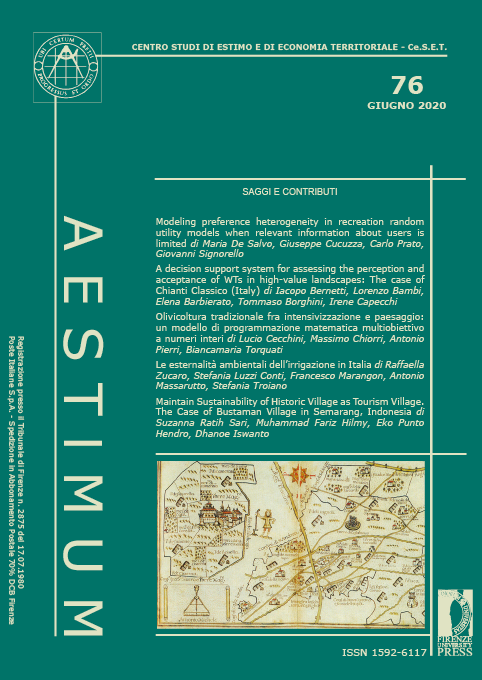Modeling preference heterogeneity in recreation random utility models when relevant information about users is limited
Published 2020-06-23
Keywords
- recreation demand,
- heterogeneity,
- location-specific mixed logit model,
- willingness-to-pay space,
- Hunting
Abstract
We suggest a novel approach to analyze revealed preference heterogeneity in recreation random utility maximization models when information about users is limited to their place of residence. We assume that recreationists living in the same place act as a “cohort” and that their preferences are hence homogeneous. We adopt a location-specific distribution criterion. We empirically test the suitability of this spatial approach by comparing its econometric performance and welfare estimates with that of the standard individual framework. We use data on hunting in Sicily to empirically test the cohort approach. Results from individual-specific and location-specific mixed logit models suggest that econometric performance improves when modeling heterogeneity with a location-specific conditional distribution. Further, marginal willingness-to-pay mean values and distributions for site characteristics differ significantly.







